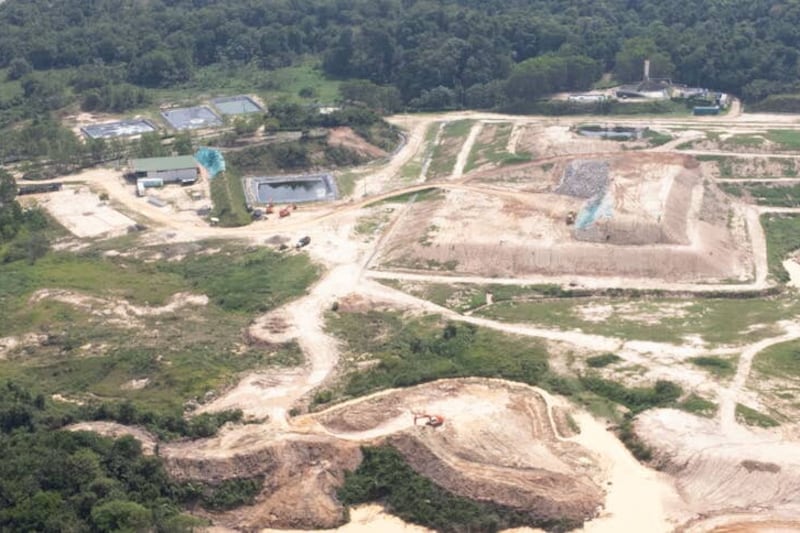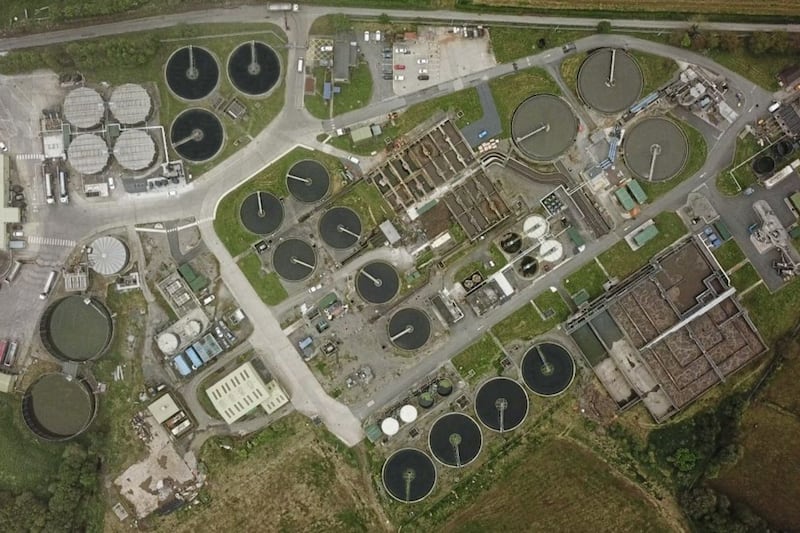WE'VE been constantly reminded when out clapping for frontline workers that it's not just the NHS and care home staff who've been doing a sterling job.
That applause was also for delivery drivers and shop workers, police and fire crews, pharmacists and cleaners, even broadcast and daily newspaper journalists.
But there's another cohort which has literally been 'knee-deep in the unmentionable' which has had a key role during the pandemic - the north's wastewater and sewage workers.
Nick O’Hara is wastewater treatment manager at Veolia Northern Ireland, the company responsible for the day-to-day operation of the five wastewater treatment plants it operates on behalf of NI Water.
Veolia’s 75-strong team treats 20 per cent of the sewerage and wastewater in the north and 100 per cent of the sludge created by the wastewater treatment process - work which is absolutely essential to maintaining the region’s wastewater effluent quality and meeting environmental standards.
"When you've been to the toilet in your home or workplace, and you've flushed the loo, it's taken for granted that it'll all go away and will be dealt with, and I doubt if anybody gives a second thought to how that happens," says Nick.
One of his responsibilities is running the strategically important plant at Ballynacor, located next to Lough Neagh and servicing most of the Portadown, Craigavon and Lurgan areas, which cleans 140,000 people’s wastewater (up to 70 million litres) every single day.
"Covid has brought its particular challenges. But while many businesses shut down for a time, Ballynacor still needs to run 24/7," Nick said.
"Its continued operation is down to the dedication and commitment of our operators and maintainers, who have had to adapt to a change in normal ways of working, ensuring all water leaving the plant continues to meet the required environmental standards.
"I was concerned at the outset that, if some of our people got sick, we'd have no-one to run the plants, and the consequences would have been unthinkable.
"But fortunately there been absolutely no interruptions to Northern Ireland’s wastewater treatment services, even though our staff have had to adapt to very different ways of working.
"Daily tasks at our plants still need to be carried out to keep them operating at full capacity while remaining compliant at all times. This is now done whilst adhering to strict social distancing rules to ensure we keep our staff safe.
"These tasks include checking the equipment is operating well, repairing equipment whenever a problem is arises, and testing the water leaving the plant to ensure it meets the required standards," he added.
Veolia also operates wastewater plants in Armagh, Ballyrickard, North Down and Richhill on behalf of NI Water, as well as the sludge incinerator at Duncrue Street in Belfast.
Much of what flows through the sewers in Northern Ireland is, well, sewage,but the rest is water and accumulated debris like silt that seeps into the sewers when it rains.
The adapt to different ways of working during the pandemic and to ensure there have been absolutely no interruptions to the north’s wastewater treatment services, the company implemented its own VOOM methodology (it means Veolia’s Optimised Operations and Maintenance).
Nick adds: "This allowed for more efficient planning of maintenance tasks and improved operational efficiency, meaning there were no disruptions to operations.
"Having this in place allowed the teams to quickly assess and prioritise maintenance tasks as changes to working practices unfolded."
That the sewage and wastewater system has operated seamlessly these last three months in particular, and that we haven't even noticed, is perhaps worthy of a round of applause all of its own . . . .






